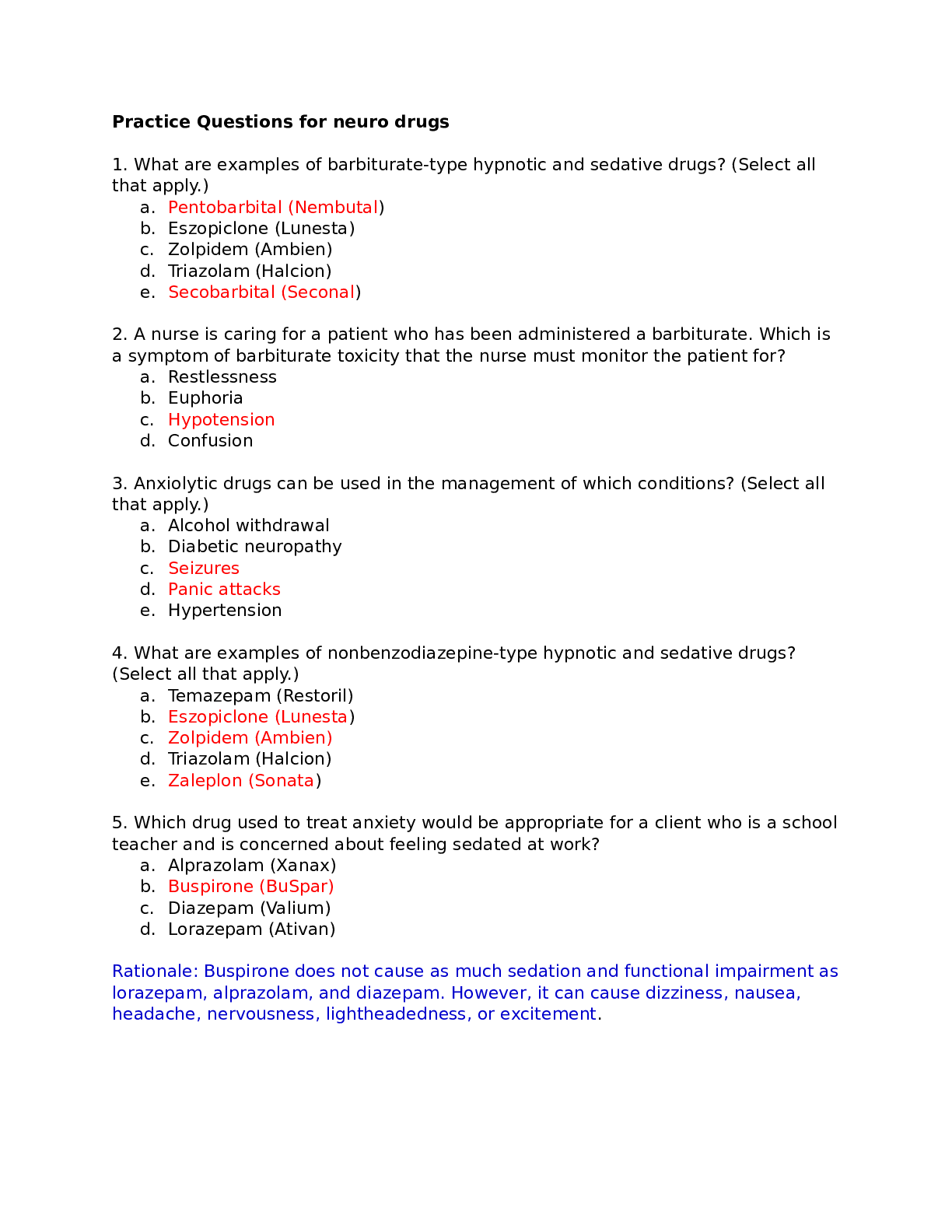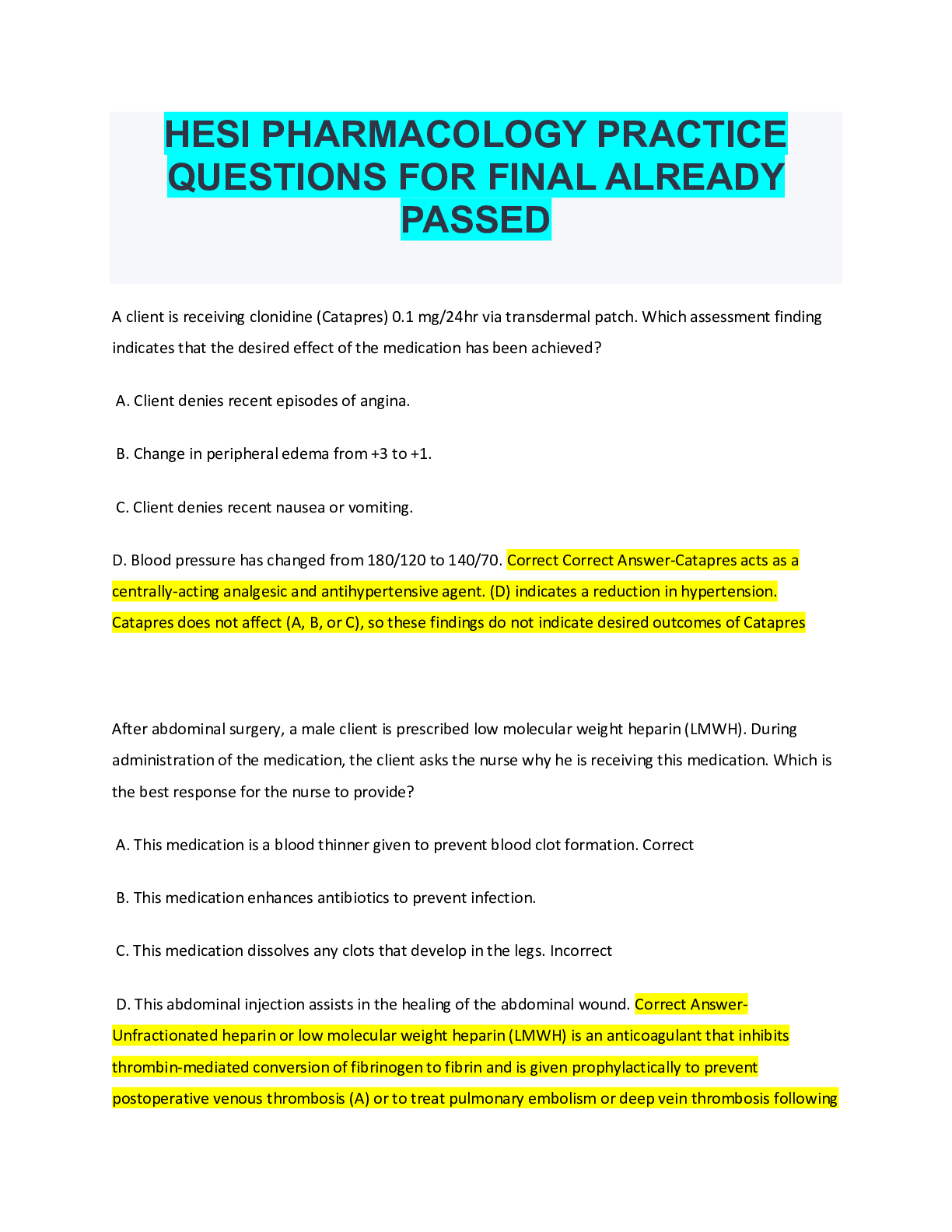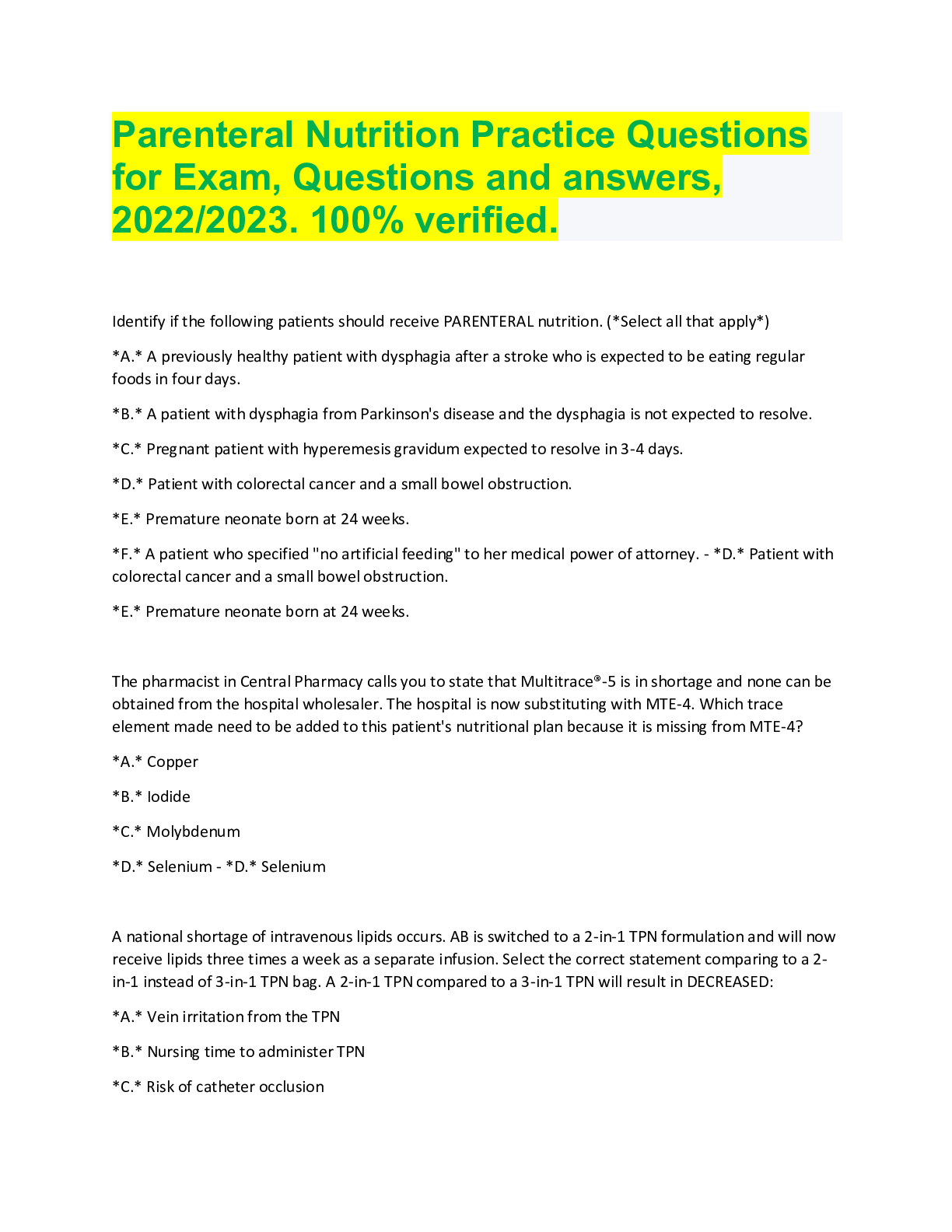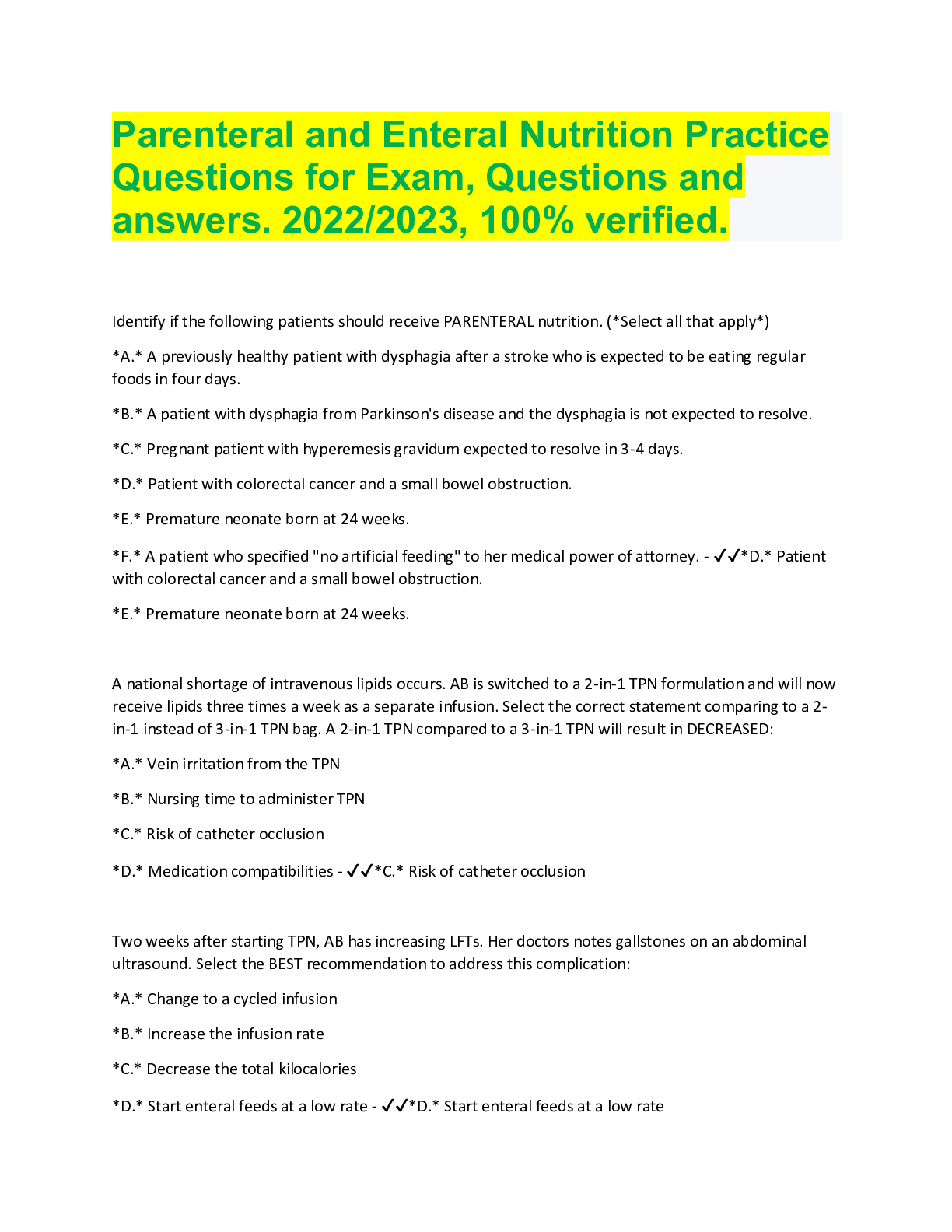Pharmacology > QUESTIONS & ANSWERS > HESI PHARMACOLOGY PRACTICE QUESTIONS FOR FINAL (All)
HESI PHARMACOLOGY PRACTICE QUESTIONS FOR FINAL
Document Content and Description Below
HESI PHARMACOLOGY PRACTICE QUESTIONS FOR FINAL A client is receiving clonidine (Catapres) 0.1 mg/24hr via transdermal patch. Which assessment finding indicates that the desired effect of the medica... tion has been achieved? A. Client denies recent episodes of angina. B. Change in peripheral edema from +3 to +1. C. Client denies recent nausea or vomiting. D. Blood pressure has changed from 180/120 to 140/70. Correct ✔✔Catapres acts as a centrallyacting analgesic and antihypertensive agent. (D) indicates a reduction in hypertension. Catapres does not affect (A, B, or C), so these findings do not indicate desired outcomes of Catapres After abdominal surgery, a male client is prescribed low molecular weight heparin (LMWH). During administration of the medication, the client asks the nurse why he is receiving this medication. Which is the best response for the nurse to provide? A. This medication is a blood thinner given to prevent blood clot formation. Correct B. This medication enhances antibiotics to prevent infection. C. This medication dissolves any clots that develop in the legs. Incorrect D. This abdominal injection assists in the healing of the abdominal wound. ✔✔Unfractionated heparin or low molecular weight heparin (LMWH) is an anticoagulant that inhibits thrombin- mediated conversion of fibrinogen to fibrin and is given prophylactically to prevent postoperative venous thrombosis (A) or to treat pulmonary embolism or deep vein thrombosis following knee and abdominal surgeries. Heparin does not dissolve clots but prevents clot extension or further clot formation (C). The anticoagulant heparin does not prevent infection (B) or influence operative wound healing (D). A client with coronary artery disease who is taking digoxin (Lanoxin) receives a new prescription for atorvastatin (Lipitor). Two weeks after initiation of the Lipitor prescription, the nurse assesses the client. Which finding requires the most immediate intervention? A. Heartburn. B. Headache. C. Constipation. D. Vomiting. Correct ✔✔Vomiting, anorexia and abdominal pain are early indications of digitalis toxicity. Since Lipitor increases the risk for digitalis toxicity, this finding requires the most immediate intervention by the nurse (D). (A, B and C) are expected side effects of Lipitor A client with heart failure is prescribed spironolactone (Aldactone). Which information is most important for the nurse to provide to the client [Show More]
Last updated: 1 year ago
Preview 1 out of 65 pages
Instant download
.png)
Buy this document to get the full access instantly
Instant Download Access after purchase
Add to cartInstant download
Also available in bundle (1)
.png)
HESI PHARMACOLOGY BUNDLED EXAMS QUESTIONS AND ANSWERS WITH COMPLETE SOLUTIONS
HESI PHARMACOLOGY BUNDLED EXAMS QUESTIONS AND ANSWERS WITH COMPLETE SOLUTIONS
By Nutmegs 1 year ago
$20
15
Reviews( 0 )
Document information
Connected school, study & course
About the document
Uploaded On
Feb 04, 2023
Number of pages
65
Written in
Additional information
This document has been written for:
Uploaded
Feb 04, 2023
Downloads
0
Views
86

.png)
.png)
.png)
.png)
.png)
.png)
.png)
.png)
.png)
.png)
.png)

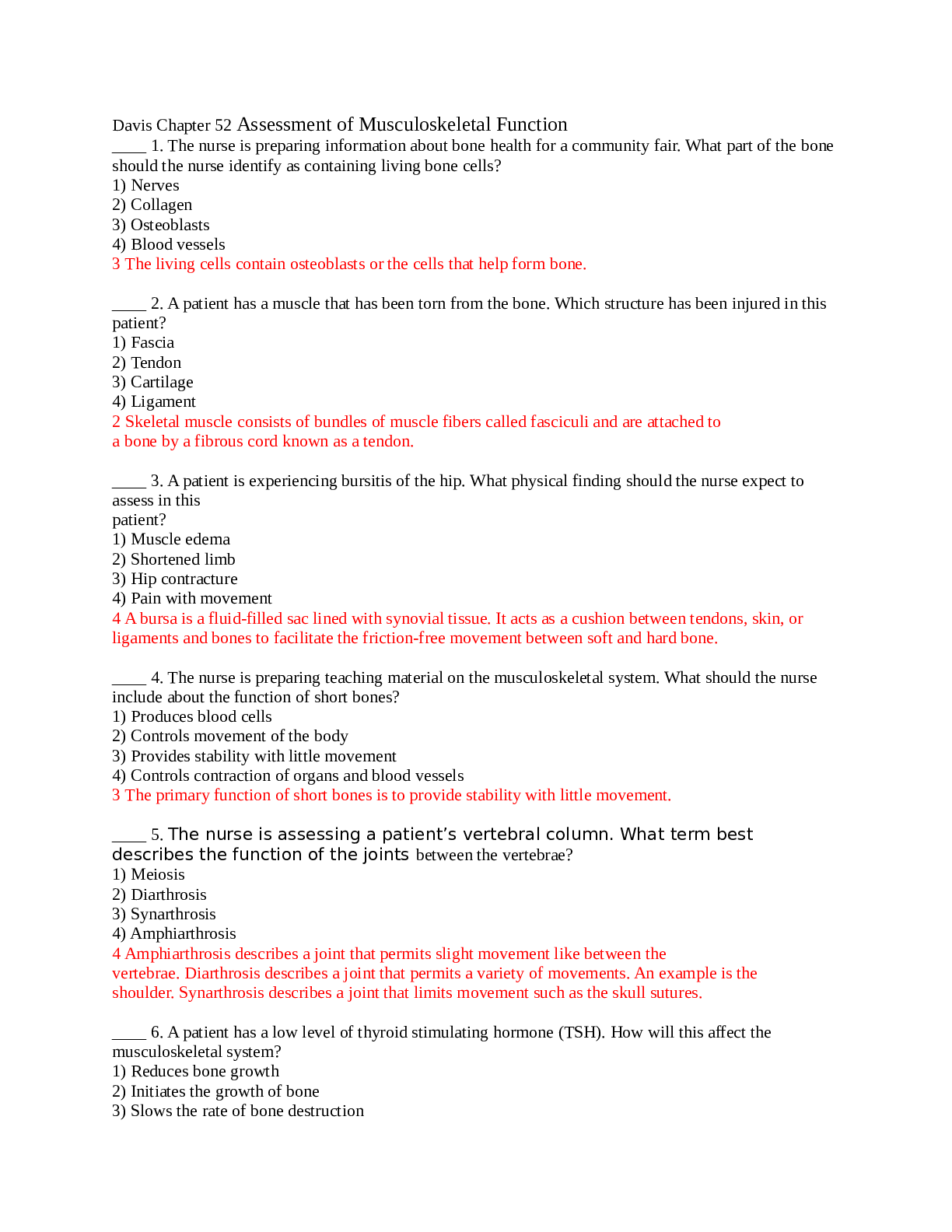
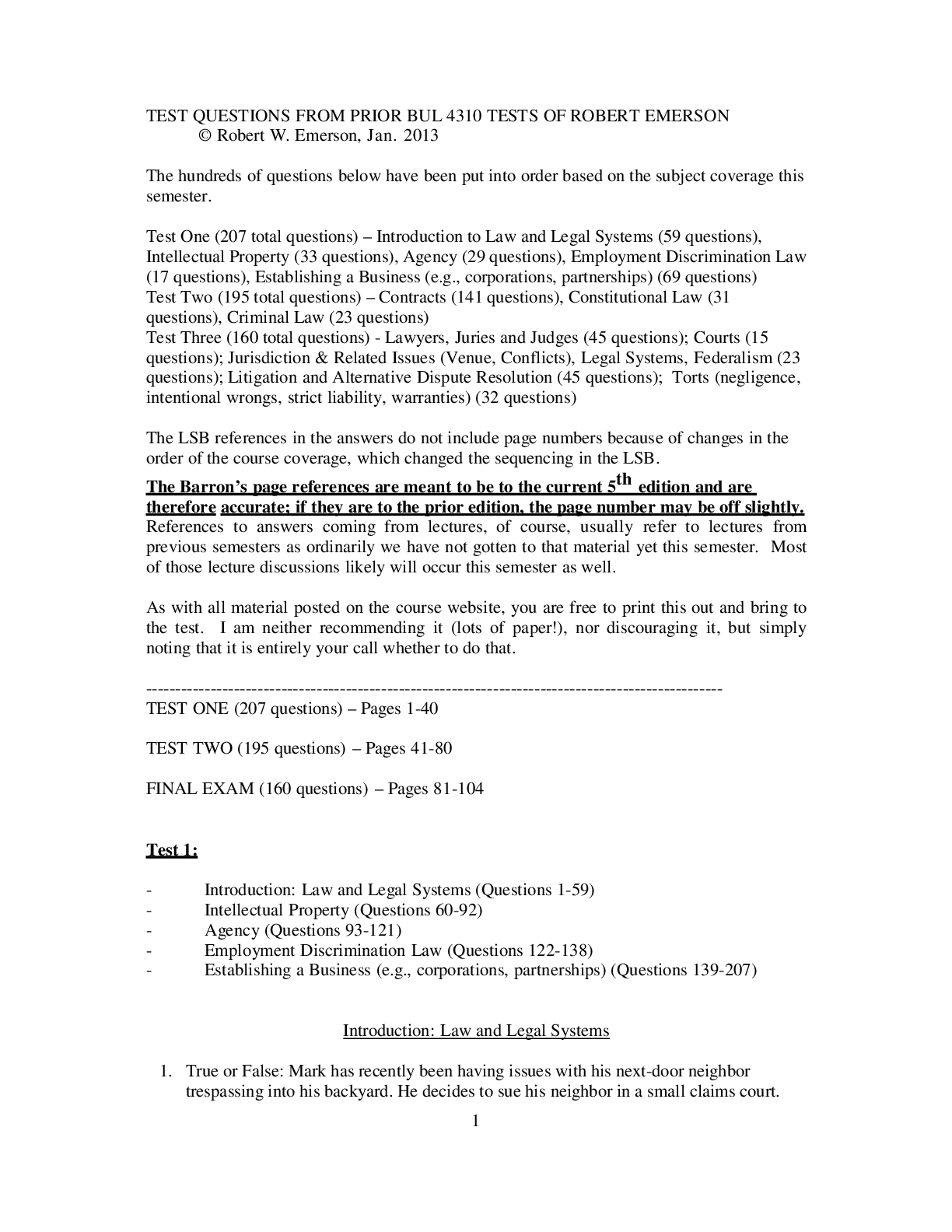
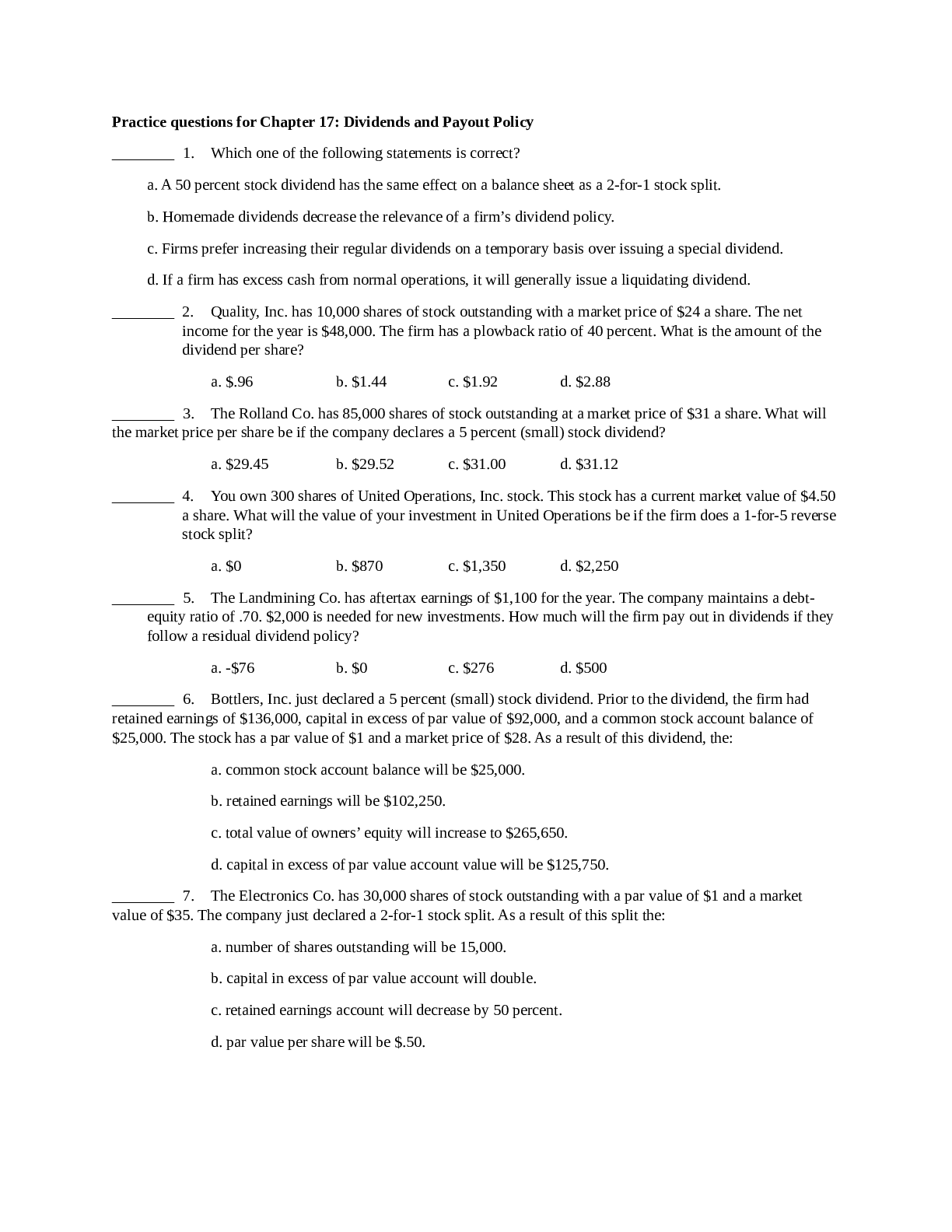
 Revised Study Guide.png)
.png)
.png)
.png)
